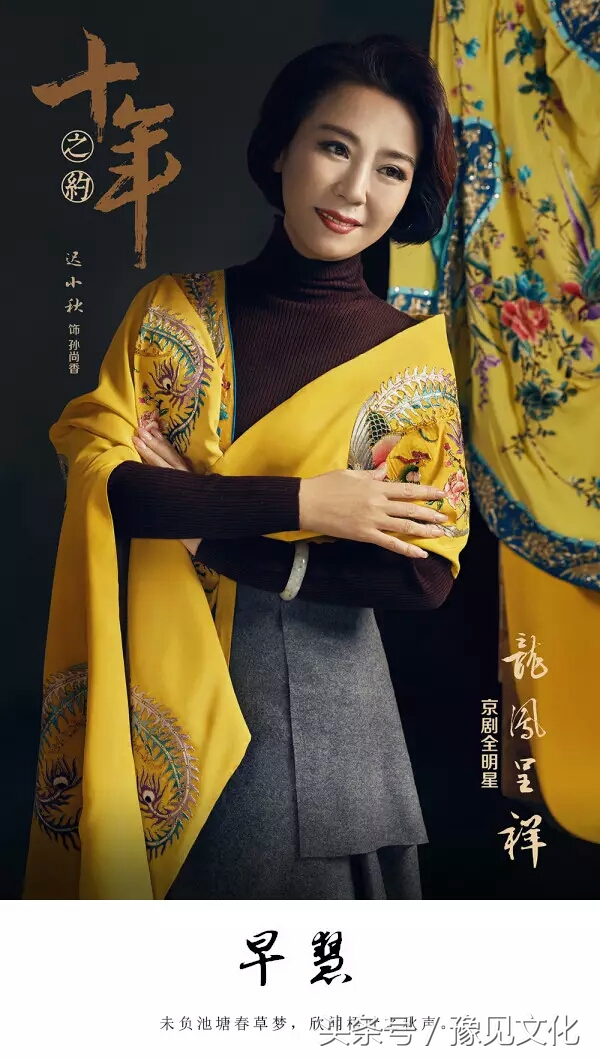A famous artist of contemporary Peking Opera, a descendant of cheng pai art. A national first-class actor, one of the leading actors of the Beijing Opera House, enjoys the special government allowance of the State Council. Born in 1965 in Fuxin City, Liaoning Province, he entered the Fuxin Opera School in Liaoning Province in 1977 to study drama, and began to study cheng pai in 1981 with Mr. Wang Yinqiu, a disciple of Master Cheng Yanqiu, and officially worshipped in Beijing on April 1, 1983, changed his name to "Chi Xiaoqiu", and won the "Plum Blossom Award", the highest award in the Chinese theater industry, at the age of 19. He is known as the "standard descendant of the Cheng School" by the famous playwright Weng Yihong, and is the leader of the Cheng School art of Peking Opera today.

She sings well, has profound stage skills, and enjoys high artistic achievements and achievements. His representative works include "Suolin Capsule", "Jasper Hairpin", "Tears of the Barren Mountain", "Peacock Southeast Flying", "Dou E'e Grievance", "Wen Ji Gui Han" and so on. He has participated in many major national and international artistic activities, and has led the troupe to perform in all parts of the country, Hong Kong, Macao and Taiwan, the United States, Canada, France, Switzerland and other countries and regions, which have been warmly welcomed and widely praised, and have been quite influential in the theater circles at home and abroad, and have made great contributions to the inheritance and promotion of the art of The Peking Opera Chengpai.
In 1984, at the age of 19, Chi Xiaoqiu won the second Chinese Drama Plum Blossom Award, and in the same year was elected as the youngest director of the Chinese Dramatists Association, enjoyed special government subsidies issued by the State Council in 1992, and won the first place in the nomination award of the "Mei Lanfang Gold Award Competition" in 1993. In 1997, he won the 7th Wenhua Award of the Chinese Ministry of Culture. In 2005, he was selected for "Chinese Peking Opera Hundred Beauty Map" and transferred to the Beijing Opera House in the same year. In 2008, he was awarded the honorary title of "Ten Masters of the Capital" and was elected as the torchbearer of the 29th Beijing Olympic Games in the same year. In 2011, he was awarded the "Lifetime Artistic Achievement Award" by the Lincoln Center for the Arts, and in 2012, he was named an "Outstanding Communist Party Member" of the National Propaganda and Cultural System.
He is currently the head of the Beijing Peking Opera Youth League (appointed in July 2007), a director of the Chinese Dramatists Association, a member of the Standing Committee of the Beijing Municipal Committee of the Chinese People's Political Consultative Conference, a vice chairman of the Beijing Dramatists Association, a director of the China Association for the Promotion of Peaceful Reunification, a representative of the 11th Party Congress of Beijing Municipality, and a representative of the 8th Congress of the China Federation of Literary and Art Circles. He once served as a deputy to the 10th National People's Congress, vice chairman of the Liaoning Branch of the China Federation of Literary and Art Circles, vice chairman of the Liaoning Provincial Dramatists Association, and vice president of the Shenyang Peking Opera House.